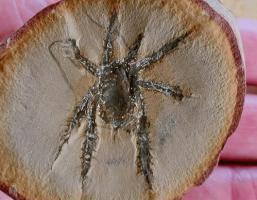Copy Link
Add to Bookmark
Report
Cider Digest #0940

Subject: Cider Digest #940, 27 December 2001
From: cider-request@talisman.com
Cider Digest #940 27 December 2001
Forum for Discussion of Cider Issues
Dick Dunn, Digest Janitor
Contents:
Re: Cider Digest #939, 20 December 2001 ("Benjamin Watson")
Re: Dan Spoelstra's question ("Ian A. Merwin")
Malo-lactic fermentation (Claude Jolicoeur)
Send ONLY articles for the digest to cider@talisman.com.
Use cider-request@talisman.com for subscribe/unsubscribe/admin requests.
When subscribing, please include your name and a good address in the
message body unless you're sure your mailer generates them.
Archives of the Digest are available at www.talisman.com/cider
----------------------------------------------------------------------
Subject: Re: Cider Digest #939, 20 December 2001
From: "Benjamin Watson" <bwatson@monad.net>
Date: Fri, 21 Dec 2001 07:19:05 -0500
> I have room for 2 more trees. I'd like to plant a
> couple of true cider varieties. I'm sure I have a good base but am
> confused about what else I may need-- Bittersweets, Sharps ?? Please
> make suggestions. Or is this really not that important to making good
> cider. I don't want the tart stuff you all have been talking about Or is
> the-"too tart" problem unrelated to apple varieties and only a matter of
> the fermentation process?
You have the opposite problem from me. My friend has one enormous tree, that
this year contributed 23 bu. to our 60 bu. October press schedule. It's a
seedling variety we call Castle Rock, with an appealing touch of sweetness
when fully tree-ripe, but still very, very high in acid. Our "sweet" cider
tests out to around 0.9% total acid, which makes a very bracing tonic in the
morning and means that the cider keeps very well and makes good "real" cider
with wild yeasts and no sulfites (I usually ferment a big batch of sulfited
cider, pitched with a champagne-type yeast, and a smaller test batch of
natural cider fermented with wild yeast.)
At any rate, to your question. The varieties you mention probably have
decent acidity, but it's masked by the sweetness in the fruit. For example,
I just started a five-gallon batch of Golden Russet cider this week: the
unblended juice is way too sweet for my taste, and the specific gravity was
high, around 1.070, and yet the total acidity was also quite acceptable,
around 0.69%. Most North American dessert varieties (with the notable
exception of Red Delicious) have a good sugar/acid balance.
If your goal is to add more acidity, I would consider bittersharps over
bittersweets, which have a lot of sugar and tannin, but not much acid.
English bittersharps that I add to my cider blend are Foxwhelp and Kingston
Black. Both are good, but the latter is a beautiful apple and with mild
bitterness, actually palatable, unlike most cider apples which are
"spitters."
Otherwise, I might consider other American varieties with good acidity. I've
become a big fan of Wickson (a small apple with tons of sugar but still good
acidity -- a cross of Esopus Spitzenburg and Newtown Pippin). Winesap,
Jonathan, Gravenstein (though an early variety), Rhode Island Greening,
Newtown Pippin -- even Granny Smith would be good for blending.
I'm a bit surprised by your question, though -- is there some reason your
cider isn't fermenting to dryness, or are you stopping it before all the
fermentable sugars in the juice have converted to alcohol?
------------------------------
Subject: Re: Dan Spoelstra's question
From: "Ian A. Merwin" <im13@cornell.edu>
Date: Fri, 21 Dec 2001 09:45:14 -0500
Dan-
If you will provide the essential information about your orchard
location (country, state, USDA-climate zone, soil type, frost-free
growing days), I can recommend some available bittersweets and
bittertarts for you to consider planting.
***********************
In regard to the "cider heart" freeze distillation dialogue of recent
postings, it's worth noting that the heads and tails of cider
distillation contain some relatively unsavory and toxic compounds.
The old Yankee barrel freezing technique is inefficient (wastes a lot
of cider), and yields a product that includes the undesirable heads
and tails. It may also destroy your barrel, which is costly if you
are using oak.
Annie Proulx and Lew Nichols' book on ciders includes a good section
on home distillation techniques. Those with access to a mig or tig
welding shop and $70 or so to spend on stainless steel pots and metal
tubing can fabricate a home still that will produce a more palatable
eau de vie than that old frozen barrel. From a legal perspective,
possession of product distilled in either way is absurdly and
anachronistically criminalized in this land of the neo-Puritans, so
discretion is advisable for the sake of both
liver and liberty!
- --
*************************
Ian Merwin (im13@cornell.edu)
Associate Professor of Horticulture
118 Plant Science Bldg.
Dept. of Horticulture
Cornell University, Ithaca, NY, 14853
Tel. 607-255-1777
URL. http://www.hort.cornell.edu/department/faculty/merwin/index.htm
------------------------------
Subject: Malo-lactic fermentation
From: Claude Jolicoeur <cjoli@gmc.ulaval.ca>
Date: Fri, 21 Dec 2001 22:30:41 -0500
We have been talking quite a bit about Malo-lactic fermentation (MLF) these
last digests. For my part, I have never done anything for this MLF to
occur, I have always assumed it simply occured by itself.
I assume that MLF occurs because my ciders once finished have about the
same acidity (tastewise) as a good dry white wine - actually, many dry
wines like "Entre 2 mers" from Bordeaux or "Muscadet" taste more acidic
than my ciders. And this, considering that my apple mixtures are generally
on the sharp side.
So I would like to inquire if there is a way to know for sure if the MLF
occurs and when. Is there a test I could do that would tell me: OK, MLF has
started... And how long does it last? Does it occur in bottles or in the
carboy?
Claude Jolicoeur, Quebec
------------------------------
End of Cider Digest #940
*************************























